We’re six months into the Copyright (Infringing File Sharing) Amendment Act, the law that pleased no one (the copyright lobby thought copyright holders should only pay the price of sending a letter, everyone that uses the internet thought the law was stupid), but was passed anyway.
Invalid notices
Tech Liberty asks if some infringement notices being sent to customers are invalid because they don’t contain the required information under the law.
An Orcon customer posted on the 3StrikesNZ forum about two notices (s)he received and posted the screenshots of the emails (click for larger versions). Note that both notices are for the same song. Anonnz says that the offending file, torrent, and software was removed after the first notice and so a second warning notice should never have been sent.
Tech Liberty brings up a number of reasons why the notices are invalid according to the Copyright (Infringing File Sharing) Regulations:
- 4(2)c(iii) states notices must describe the type of work in terms of section 14(1) of the Copyright Act.
- 4(2)c(iv) states notices must describe the restricted act or acts in terms of section 16(1) of the Copyright Act by which copyright in the work is alleged to have been infringed.
- 4(2)c(v) states notices must give the New Zealand date and time when the alleged infringement occurred or commenced, which must specify the hour, minute, and second. The first notice doesn’t specify the time to the second.
- 4(2)c(vi) states notices must identify the file sharing application or network used in the alleged infringement.
- 5(2)b states notice numbers must identify whether the notice is a detection notice, a warning notice, or an enforcement notice; and (c) that they must identify the IPAP that sent the notice.
Account suspension
Additionally, the second to last paragraph of the notice misinforms customers about internet account suspension, stating: “the Copyright Tribunal has the authority to … apply to the District Court to suspend your account for any period up to six months”. Account suspension is not currently an available punishment.
The requirements for notices and punishments are spelled out quite clearly, so I wonder what else copyright holders and IPAPs are doing incorrectly.
Delivery of infringement notices
There’s some really interesting discussions over on the 3StrikesNZ forum.
The nature of delivery of infringement notices has been brought up. FlyingPete suggests that email is unreliable for the delivery of such important notices (as in missing them could cost the account holder $15k), because of spam filters and because some people don’t check email accounts very often.
The Act states that infringement notices are to be sent the same way bills are sent, unless agreed otherwise, and assumes that the way you receive your bill must be reliable, otherwise you wouldn’t pay it. It overlooks that a lot of people are using automatic payments and don’t need to check the bill for a service that stays the same price every month.
StuFlemingWIC, from an IPAP, points out that even snail mail is unreliable, especially when sent to student flats. He suggests that registered mail would have been a good requirement for sending notices.
Image credit: Anonnz
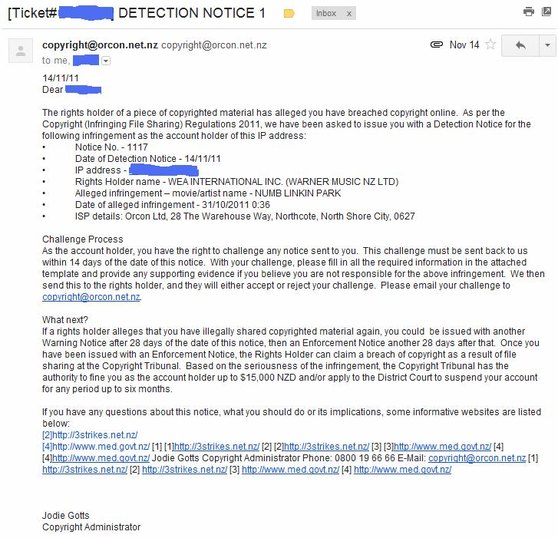
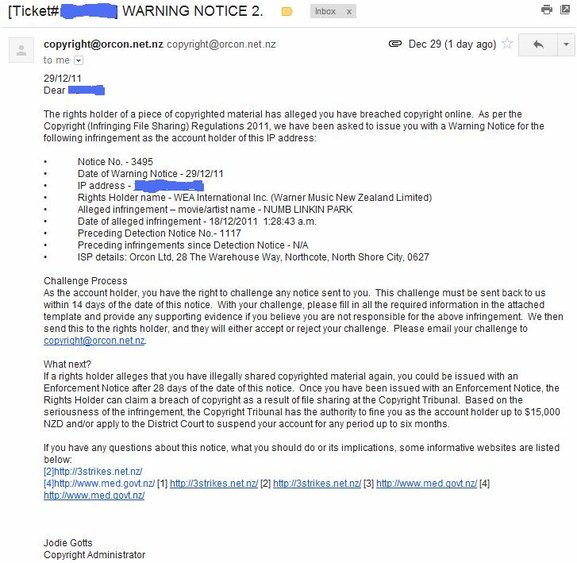
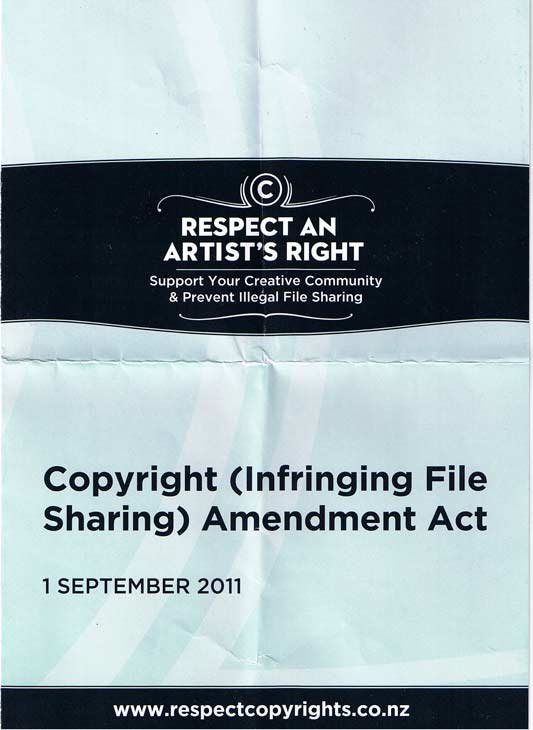
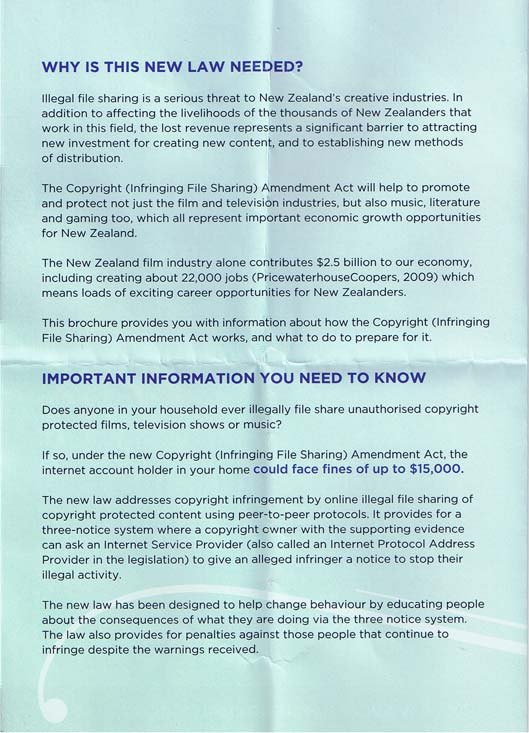
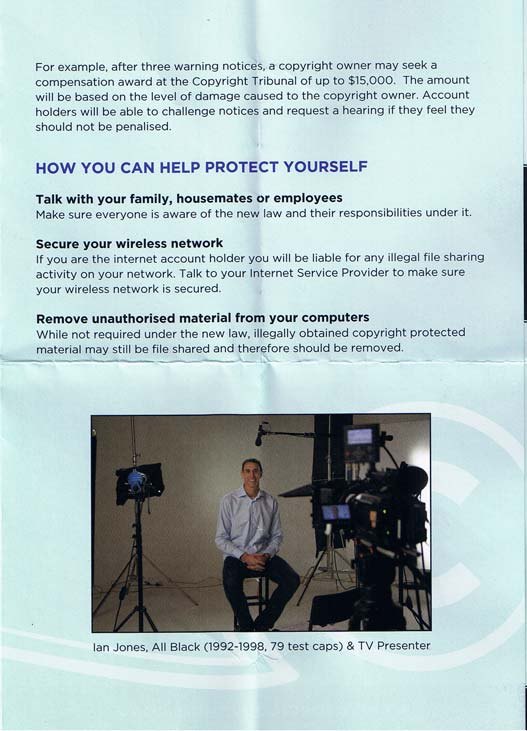
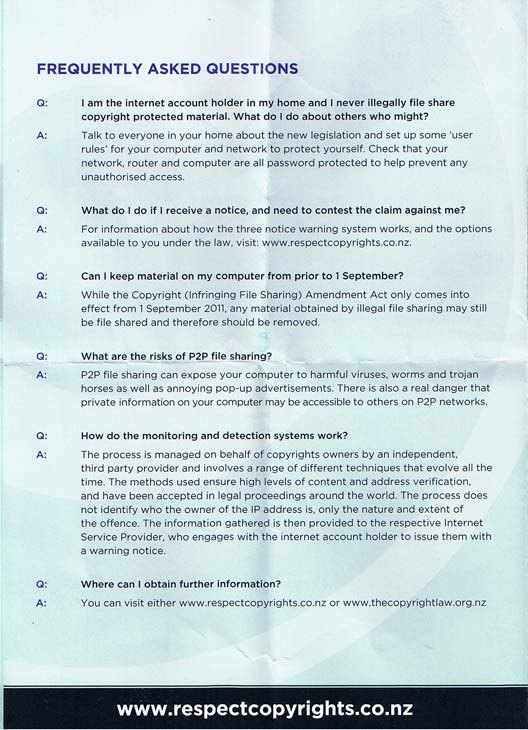
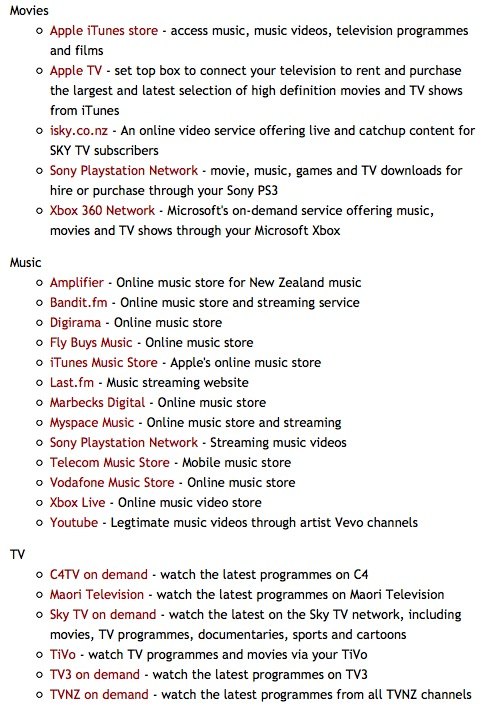
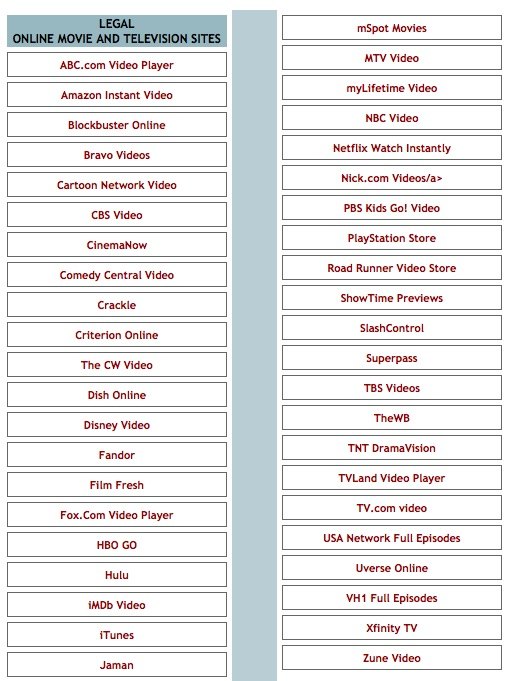


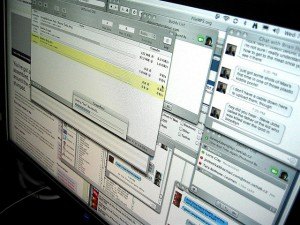 Notices from rights owners are sent to alleged infringers through their internet protocol address provider (effectively their internet service provider), like Telecom, Orcon and Slingshot. The order of the three notices (hence the three strikes name) are a detection notice, warning notice and then an enforcement notice. What notice you’re on is specific to each rights owner, eg. if you’re on the second notice, a warning notice, with
Notices from rights owners are sent to alleged infringers through their internet protocol address provider (effectively their internet service provider), like Telecom, Orcon and Slingshot. The order of the three notices (hence the three strikes name) are a detection notice, warning notice and then an enforcement notice. What notice you’re on is specific to each rights owner, eg. if you’re on the second notice, a warning notice, with